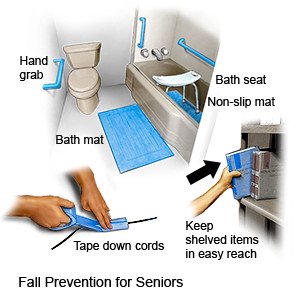Labyrinthitis
Medically reviewed by Drugs.com. Last updated on Aug 4, 2025.
Labyrinthitis is an inflammation of the labyrinth or nerves in the inner ear. The labyrinth helps you hear and keep your balance. Symptoms can make it difficult to walk or do your normal activities but are not life-threatening.
DISCHARGE INSTRUCTIONS:
Call your local emergency number (911 in the US) or have someone call if:
- You have trouble speaking or thinking clearly.
- You have vision changes or shortness of breath.
Return to the emergency department if:
- You are not able to keep any fluids, food, or medicine down without vomiting.
- You have a dry mouth or cracked lips.
- You have a headache, stiff neck, and a fever.
- Your heartbeat is fast or irregular.
- You are not able to urinate.
- You have blood, pus, or fluid coming out of your ears.
- You have dizzy spells that last longer than they usually do.
- You have any weak or numb areas.
Call your doctor if:
- You have a fever.
- You have ear pain.
- You feel weak, tired, or lose weight without trying.
- Your symptoms keep coming back or get worse.
- You have questions or concerns about your condition or care.
Medicines:
You may need any of the following:
- Antivertigo medicine helps you feel less dizzy.
- Antinausea medicine helps calm your stomach and prevents vomiting.
- Antiviral medicine treats a viral infection.
- Antibiotics treat a bacterial infection.
- Steroids decrease inflammation in the inner ear.
- Take your medicine as directed. Contact your healthcare provider if you think your medicine is not helping or if you have side effects. Tell your provider if you are allergic to any medicine. Keep a list of the medicines, vitamins, and herbs you take. Include the amounts, and when and why you take them. Bring the list or the pill bottles to follow-up visits. Carry your medicine list with you in case of an emergency.
Manage labyrinthitis:
- Do the following when you have signs and symptoms of labyrinthitis:
- Be calm and take slow, deep breaths.
- Sit or lie down right away when you feel dizzy.
- Keep your head as still as possible and do not change positions quickly. Move slowly and let yourself get used to one position before moving to another position.
- Do not walk without help, drive a car, or operate heavy machinery when you feel dizzy.
- Make your home safe to prevent falls. Use a 4-pronged cane or walker to help you keep your balance when you walk. Remove loose carpeting from the floor to reduce your risk for a fall. Use chairs with side arms and hard cushions to make it easier to get up or out of a chair. Put grab bars on the walls beside toilets and inside showers and bathtubs. These will help you get up and help prevent falls. You may want to put a shower chair inside the shower.

- Use vestibular and balance rehabilitation therapy (VBRT), if directed. Therapy may be done with a physical therapist or at home. VBRT includes movement exercises while you are sitting or standing. These exercises will make you dizzy, but can also help your brain adapt to the triggers that are causing your vertigo. Over time, this therapy may help you have vertigo less often and also improve your balance.
For more information:
- Vestibular Disorders Association
P.O. Box 13305
Portland , OR 97213-0305
Phone: 1- 503 - 2297705
Phone: 1- 800 - 8378428
Follow up with your doctor as directed:
Write down your questions so you remember to ask them during your visits.
© Copyright Merative 2025 Information is for End User's use only and may not be sold, redistributed or otherwise used for commercial purposes.
The above information is an educational aid only. It is not intended as medical advice for individual conditions or treatments. Talk to your doctor, nurse or pharmacist before following any medical regimen to see if it is safe and effective for you.
Learn more about Labyrinthitis
Treatment options
Care guides
Further information
Always consult your healthcare provider to ensure the information displayed on this page applies to your personal circumstances.
